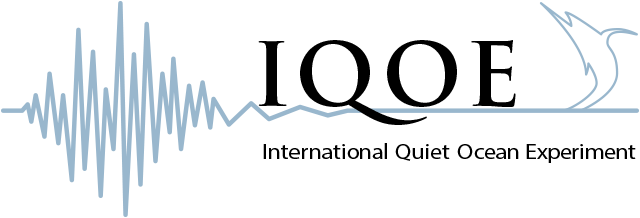IQOE provided the lead article for a special issue of ECO Magazine on ocean sound. The magazine includes a variety of articles on science, technology, and policy, and also includes embedded sounds relevant to articles in the magazine.
IQOE News
ECO Magazine has just released a special issue on ocean sound.This issue is a well-balanced presentation of the issues related to sound in the ocean, with excellent articles on science, technology, management, and the environmental. This publication will be helpful for public outreach related to IQOE. The embedded sounds from the ocean should be especially helpful to attract public interest to the issue of sound in the ocean
An article in the 11 April 2019 issue of Nature magazine discusses the issue of sound in the ocean and notes IQOE's role in studying ocean sound and its effects on marine organisms (see https://www.nature.com/magazine-assets/d41586-019-01098-6/d41586-019-01098-6.pdf).
Quieting Ships to Protect the Marine Environment: Technical Workshop will be held at the IMO Headquarters in London, UK on 30 January to 1 February 2019 (see https://en.xing-events.com/FUPYYKX.html)
The IQOE-endorsed PhYsic project has establised a Facebook page at https://www.facebook.com/PHySIColombia/.
Maritime authorities in Sweden and Denmark have proposed a rerouting of the main shipping routes into the Baltic Sea, scheduled to be implemented in 2020. This creates a unique opportunity to study effects of heavy ship traffic in a shallow sea. The IQOE-endorsed project "Rerouting shipping lanes in the Kattegat – effects on soundscape and ecosystem (TANGO)" will measure a range of parameters in the existing shipping lane, the new shipping lane and reference areas away from the shipping lanes. This will be done for at least a full year prior to rerouting, to establish a baseline, and at least one full year after the change. The primary goal of the project will be to describe changes to the soundscape (by sound recorders) in ecological important areas and quantify effects on harbour porpoise abundance (by passive acoustic monitoring). Secondary goals will be to study other ecosystem components: birds (by aerial surveys), fish (by eDNA) and benthic invertebrates (by surveys and sampling). This is an example of the opportunistic approach employed by IQOE-related projects to study the effects of sound on marine organisms without adding sound to the ocean.
The U.S. National Research Council recently released a report entitled Understanding and Predicting the Gulf of Mexico Loop Current. The report recommended establishment of a grant program for research, which has been implemented. The report describes the use of acoustics to study the Loop Current. Hard copies are available for purchase and a pdf version of the report can be downloaded for free.
The IQOE Working Group on Standardization has released an inventory of existing standards for observations of sound in the ocean. It can be found on the IQOE Website at www.iqoe.org/.../IQOE Inventory of existing standards - Version 2018-04-06.pdf.
Soundscapes is the focus on one of the four IQOE themes. See this article on soundscapes by IQOE scientists.
